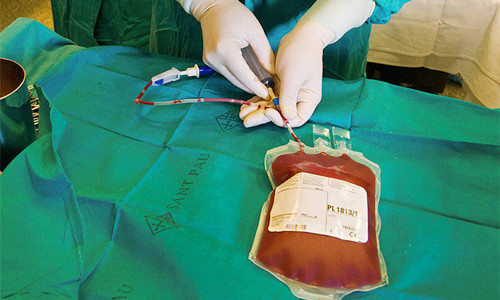New tool developed to study stem cell transplants as a potential way to treat HIV
November 14, 2017
Source: sciencedaily
 750
750

A decade ago, the medical world was shocked when a patient in Berlin, Germany, had been declared free of HIV after receiving a stem cell transplant to treat cancer. Doctors have repeatedly tried to replicate the result, but this HIV cure has evaded other patients so far.
Dr. Jonah Sacha and colleagues at OHSU's Vaccine & Gene Therapy Institute are among the many scientists who are seeking to understand why the much-studied "Berlin patient" was so fortunate. Now, they've developed a new way to understand his cure. Sacha's team has shown a species of monkey called Mauritian cynomolgus macaques can successfully receive stem cell transplants.
Researchers have long used a different monkey species to research stem cell transplants, but that species' biological characteristics means it can't be reliably used to find good donor matches to mimic human stem transplants.
In a paper published Nov. 10 in the journal Nature Communications, Sacha and colleagues report they successfully performed stem transplants on two monkeys more than a year ago that continue to lead healthy lives today. The recipients did not suffer from the many common adverse effects of stem transplants, including the grueling graft-versus-host disease, which can cause severe liver damage, rashes, diarrhea and even death.
The finding provides Sacha a critical tool needed to explore how the Berlin patient was cured. As a result of the finding, researchers can also use Mauritian cynomolgus macaques to improve stem cell transplant outcomes for human patients with other blood-related conditions such as leukemia and sickle-cell disease.
Read more on
- Disposable Medical Products that Keep Your Medical Facility Clean and Sterile March 31, 2022
- 10 Triumphant Drug Launches Of The Decade August 26, 2021
- Could a Third Person Be Cured of HIV? March 29, 2019
- Ultrasonic Nebulizer Market Views September 6, 2018
- 4 Best-Selling Digital Thermometers on Drugdu.com in 2018 September 5, 2018
your submission has already been received.
OK
Subscribe
Please enter a valid Email address!
Submit
The most relevant industry news & insight will be sent to you every two weeks.



